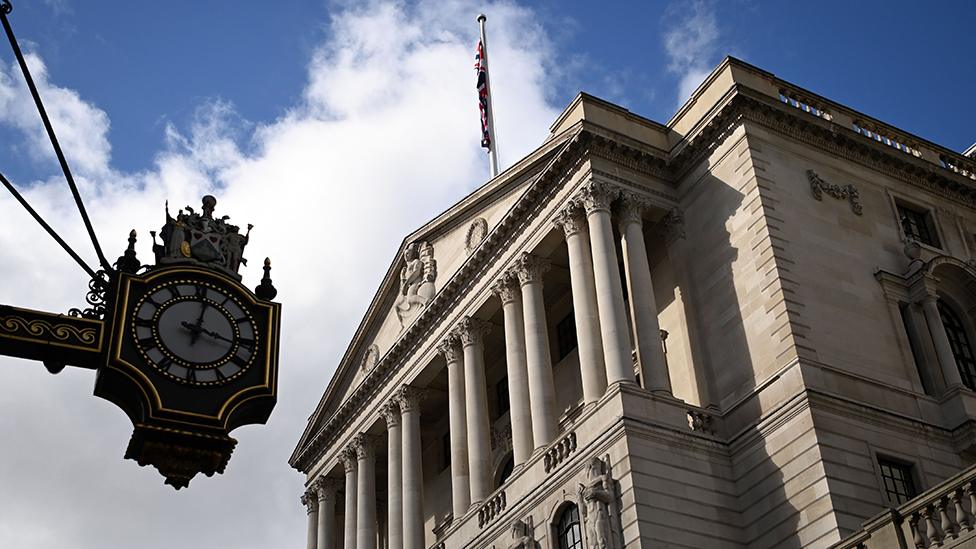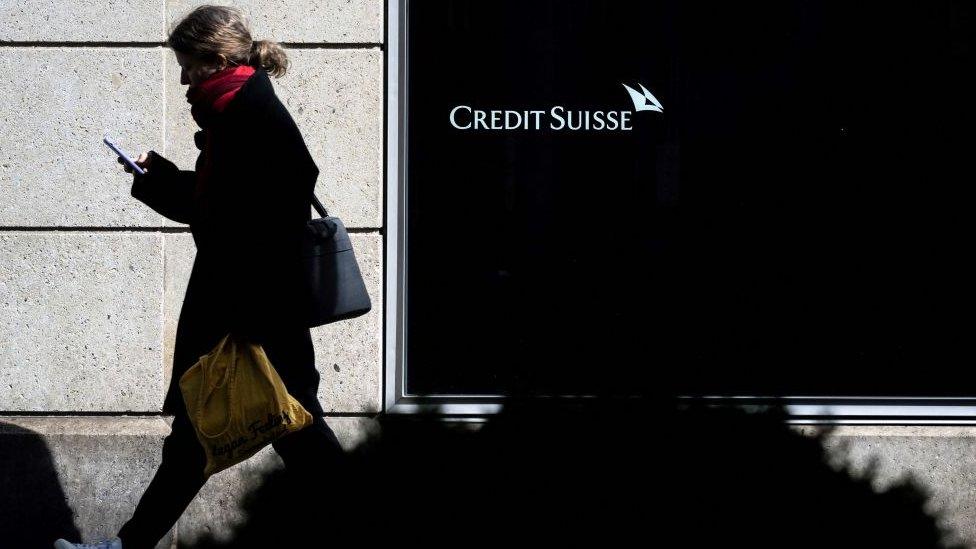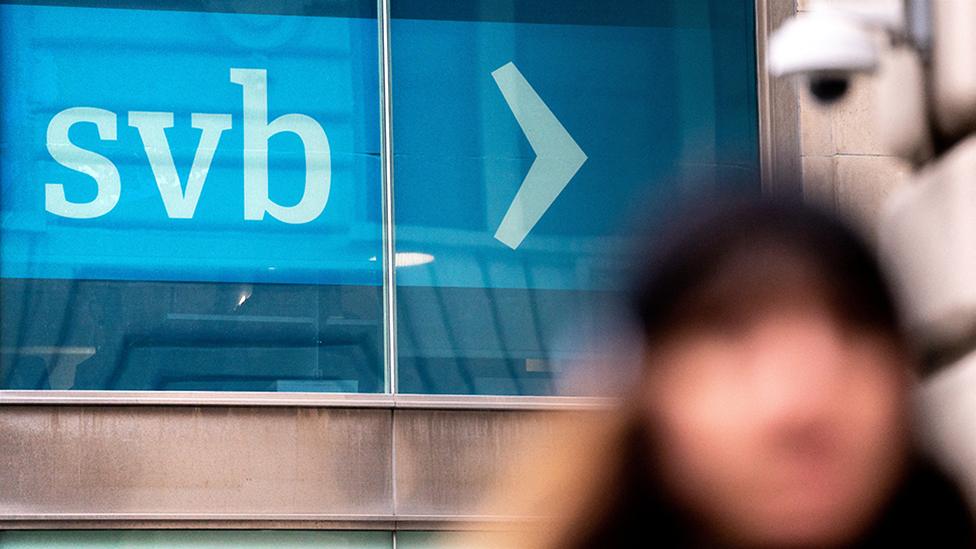Central banks take swift action to keep cash flowing amid investor fears
- Published

Central banks have rushed to keep cash flowing through the world's financial systems after the failures of two US banks and the rescue of Credit Suisse sent shockwaves across global markets.
Six central banks, including the Bank of England, announced they would boost the flow of US dollars from Monday.
Such measures were last taken during the 2008 financial crisis and at the height of the Covid pandemic.
It comes after Credit Suisse was bought by UBS in a state-backed rescue deal.
Stock markets have fallen sharply since Silicon Valley Bank and Signature Bank collapsed in the US last week, sparking fears of runs on other banks.
They remained under pressure on Monday despite the rescue of Switzerland's second largest lender this weekend.
Central banks have stressed the global banking system is safe, but there are concerns other lenders could get into trouble after recent rises in interest rates left some sitting on large losses.
In a statement the Bank of England, Bank of Japan, Bank of Canada, the European Central Bank, US Federal Reserve and Swiss National Bank said they had launched the coordinated action to keep credit flowing.
The central banks said the move served as an "important backstop to ease strains in global funding markets" and to lessen the impact on the supply of credit to households and businesses.
Instead of borrowing on the open market, British banks will be able to go direct to the Bank of England, and it will borrow from the US Federal Reserve.
It will work in the same way for banks in the eurozone, Canada, Japan, Switzerland and the US.
Banks will be able to access this funding on a daily basis.
The US dollar cash flow arrangement will run from Monday until at least the end of April, the Bank of England said.
Global banking stocks slumped following the failure of Silicon Valley Bank, despite reassurances from President Joe Biden the US would do "whatever is needed" to protect the banking system.
Since then, two more medium-sized US lenders have faced difficulties - with Signature Bank collapsing and First Republic having to seek a $30bn (£24.8bn) funding injection to shore up its finances.
A subsidiary of New York Community Bancorp - Flagstar Bank - has reached a deal with regulators to buy Signature's assets, the US Federal Deposit Insurance Corporation (FDIC) said, external on Sunday.
The deal involves almost all of Signature Bank's deposits, some of its loans, and all 40 of its former branches.


The announcement of "co-ordinated action" by six of the world's biggest central banks shows how serious is the more general nervousness about the fragility of the global banking system.
The facility hasn't been used in the UK since the financial pains at the onset of the pandemic exactly three years ago. This is not as dramatic a move as, for example, the Bank of England had to deploy after the mini-budget last autumn. But it is a clear sign that, although the past week has been dominated by specific issues in identifiable banks, the fall of a former giant such as Credit Suisse might be enough to ignite a more general concern.
The fear is less about the direct impact of problems at Credit Suisse or Silicon Valley Bank, but instead that a set of common factors are affecting some other institutions. For example non-insured deposits pouring out of some institutions and into larger ones at incredible speed, without anyone visiting a branch, thanks to technology, and influenced by social media commentary. There has also been an uncertain response by some regulators.
The bigger picture is, as I have said before, that rapidly rising interest rates were always going to set off some ticking timebombs under some institutions, and in some murky corners of the financial plumbing, where the players had started to become a little too reliant on very low interest rates. This is now happening.
The more calming news is that, for example here, British banks are well capitalised and have significant funding, or as the Bank of England put it on Sunday "safe and sound". But the fact it has joined forces with its counterparts around the world represents a show of force and an attempt to prevent risks from spilling over.
In particular there is a concern that rising rates on the funds that banks lend to one another could rapidly filter into the economy and have a very real impact.

Related topics
- Published20 March 2023

- Published14 March 2023

- Published14 March 2023

- Published2 May 2023
